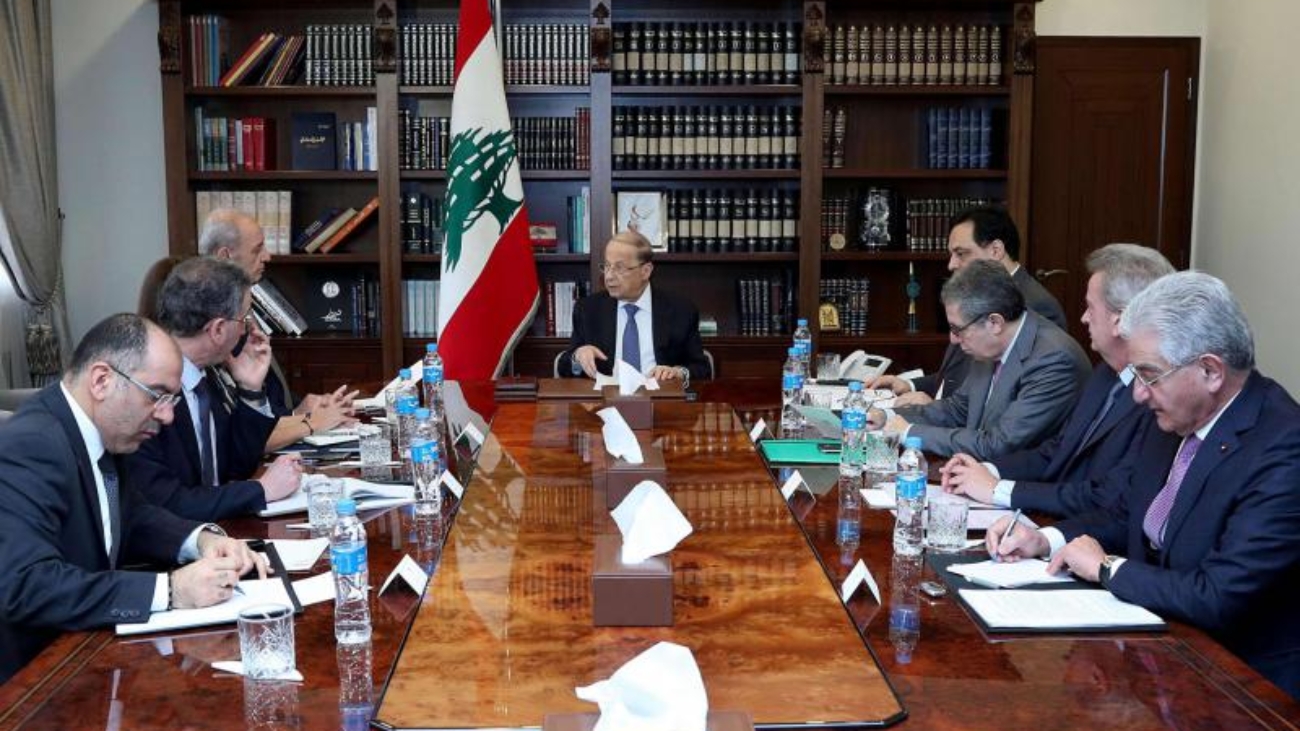This piece was originally published on the thearabweekly website https://thearabweekly.com/
TUNIS – Amid Lebanon’s economic crisis, President Michel Aoun reassured a nervous public that several countries, especially France, were standing by to aid the embattled country.
However, given the relatively fresh status of Lebanon’s government, only voted in on February 11, as well as concerns about the independence of a government seen as being too close to the country’s political class, analysts questioned how willing the international community might be to help Lebanon’s beleaguered economy.
Tackling corruption is central to any discussion on Lebanon’s political or economic future. Transparency International ranks Lebanon 137th out of the 180 countries surveyed.
Lebanon’s system of government, by which positions and ministries are divided along party and sectarian lines, has proven fertile breeding ground for graft, with parties providing services and positions in return for political support.
This system has undermined the credibility of Lebanon’s political class, with each party’s exploitation of its clientelist base seen as contributors to the crisis. The appointment of a new government had been intended to establish a body capable of undertaking wholesale reforms. However, analysts already question its proximity to the country’s existing parties and their leaders.
Looming over all negotiations is the prospect of the $1.2 billion Eurobond repayment that falls due in March.
“The multilayered root causes of corruption in Lebanon are known to everyone,” Elie Abouaoun, director of the MENA programme at the US Institute for Peace, said via e-mail, “They are not confined to civil servants. As a matter of fact, corruption in the private sector is even more endemic. “
One means of salvation might be the $11 billion in pledges made at the CEDRE conference in April 2018. However, with pledges contingent on Lebanon undertaking serious reform, those funds seem distant.
“The French government seems so far convinced that the new Lebanese government might be an acceptable interlocutor if it commits to a specific reform plan,” Abouaoun said. “Personally, I think this is wishful thinking at best,” he added, pointing to the ties that bound many of the new ministers to Lebanon’s political class.
CEDRE failed to differ in substance from previous fundraising conferences. “None of them resulted in a sustainable change because the three main bleeding sources in Lebanon have been well established a while ago: deficit of the state-owned Electricite du Liban, salaries of the public sector and the service of the public debt. Short of addressing these three issues, all other plans are doomed to fail. If anything at all, CEDRE will only increase the amount of the public debt,” Abouaoun said.
The goodwill of the international community will be critical to tackling Lebanon’s longstanding problems, with even a potential loan from the International Monetary Fund (IMF) — typically seen as the lender of last resort — apparently up for discussion among Lebanese lawmakers.
“I think the consensus among the international community is really one of let’s wait and see,” said Mohanad Hage Ali, a fellow at the Carnegie Middle East Centre. “There’s a great deal of caution among potential donors about committing to a bailout without a serious commitment to reform.”
With the Eurobond due within weeks, lawmakers have little time for debate.
“At the moment there’s a lot of discussion about whether to default on the bond repayment after seeking the IMF advice on this matter. Another ongoing debate is about joining an IMF programme. This will require surrendering some degree of sovereignty and I’m not sure that the Lebanese sectarian leaders agree on how much control they’re willing to give up,” Hage Ali said.
Despite the deterioration of services and the stagnating salaries of the positions offered in return for political support, maintaining the parties’ clientelist base remains central to the outlook of Lebanon’s political class, Hage Ali explained.
“There’s a real effort to portray this government as independent of the political class,” Hage Ali said. “However, in terms of reform, this will really depend on the willingness of Lebanon’s political class. They need to be seen as taking actions against corruption. This could start with ensuring the independence of the judiciary, (regarded as being tied to the interests of their political sponsors). Will they do that? I haven’t seen any major steps that would suggest so,” Hage Ali concluded.
Until the scale of the impending catastrophe becomes unavoidable, however, there appears to be little indication of Lebanon’s new government changing course.
“Lebanon is unlikely to enact significant measures to solve endemic corruption in the near future but this has little to do with the ideological makeup of the government,” Thomas Abi-Hanna, an analyst with risk consultancy Strafor, said, referring to the composition of the government, which is dominated by Hezbollah, Amal and their allies.
“The issue of corruption is not isolated to one sect, ideology or political party in Lebanon, given that politicians across the board engage in corrupt activity. Even if there were political will, tackling these endemic issues could take years,” Abi-Hanna said.

